Lung Cancer Awareness Month: New Advancements In Therapy You Should Know About
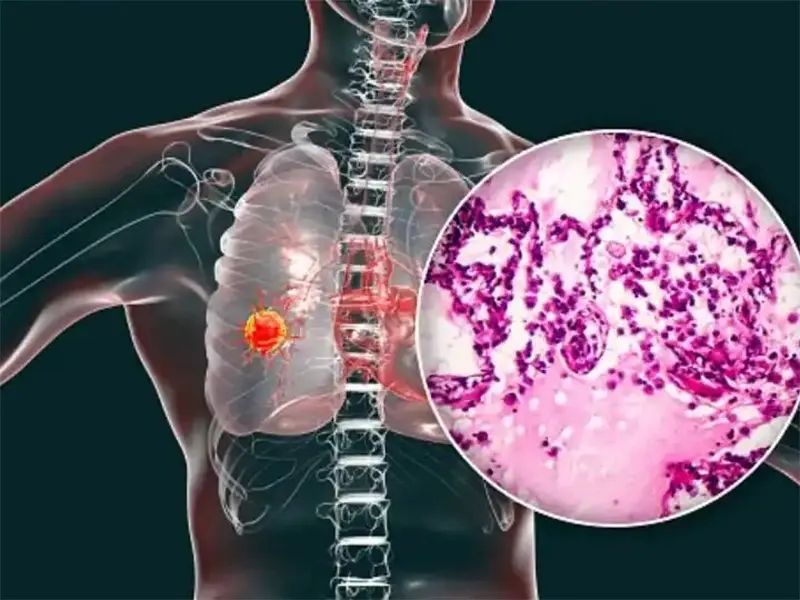


New Delhi: Covid-19 has shifted people's attention from other equally deadly ailments, even though many of them are as fatal as Covid-19. Among all the non-communicable diseases, cancer causes one of the highest cases in India.
According to WHO, cancer is a leading cause of death worldwide, accounting for 10 million deaths in 2020. Lung cancer is at the highest, with 1.80 million deaths and 2.21 million new cases.
With the outrageous rise in pollution levels and the high number of smokers across genders, lung cancer has become common across households. However, a study by Sir Ganga Ram Hospital, along with the Lung Care Foundation in 2018, says that lung cancer is no longer limited only to smokers as many non-smokers too are falling prey to it. The study also revealed that air pollution has emerged as one of the leading causes of lung cancer in India, significantly for the age group below 40.
Smoking is not the only cause of lung cancer; air pollution is also a vital trigger to develop this condition. Several studies conducted by government bodies and private organizations have found that harmful pollutants wreaking havoc on the quality of air.
According to a study published in The Lancet, 1.67 million deaths were attributable to air pollution in India in 2019, accounting for 17.8% of the total deaths in the country due to cancer.
Lung Cancer is a disease that primarily affects a person's ability to breathe and subsequently affects other body systems that depend upon function of lungs. Newer screening methods can help people who are at high risk for lung cancer, diagnose it at early stage and treat them optimally for better outcomes. Timely detection will allow them to initiate treatment in earlier and more treatable stages.
With increasing number of lung cancer cases, the industry has also witnessed innovations across the treatment options. Scientists and researchers are also finding new techniques to fight against this deadly disease. Apart from surgery, radiation, or chemotherapy, there are several new-age treatments available today. These new treatments claim to have lesser side effects, which is an essential aspect of cancer treatment.
The standard treatment for early-stage lung cancer is either surgery or radiotherapy, depending on the case. However, for a patient of stage 4 cancer which has spread to other organs, treatment options like newer chemotherapy drugs, targeted therapy, and immunotherapy are available.
Immunotherapy is a treatment that uses the body?s immune system to help slow or stop cancer growth. Various forms of immunotherapy help the body recognize a tumor unlike normal tissues in the body. One of these immunotherapy methods is a group of medications called checkpoint inhibitors.
'Checkpoints' are a built-in part of the immune system proposed to prevent it from attacking healthy cells. Checkpoint inhibitors act on the body?s lymphocytes (a type of white blood cell usually involved in fighting infections) to allow them to identify and abolish cancer cells. These inhibitors help to stimulate the immune system and gives it extra components to reinforce its ability to fight the diseased cells. They also provide a chance for immuno-oncology medicines increase the possibility for long-term survival and recover the quality-of-life.
However, it is essential to remember that immunotherapy does not mean curative treatment. On the contrary, immunotherapy improves survival along with chemotherapy by a good margin. Different studies have also shown that immunotherapy combined with chemotherapy has improved the duration of survival compared to chemotherapy alone.
There are many molecular targets, which could be found overexpressed in case of lung cancers. The two most commonly found targets are EGFR and ALK. If EGFR for example is overexpressed in a lung cancer patient, treatment usually begins with the tablets called ?tyrosine kinase inhibitors? (TKI), which have been found to be remarkably effective and have fewer side effects as well.
With the advancement in molecular diagnostics, lung cancer treatment is evolving rapidly, with newer and advanced therapies providing better cancer control and minimum side effects. We expect that a time will come where we can offer long and quality life to cancer patients.
Latest Blogs
-
![Leukemias in India- A Guide by Dr. Ashray Kole, Hemato-Oncologist & BMT Physician]()
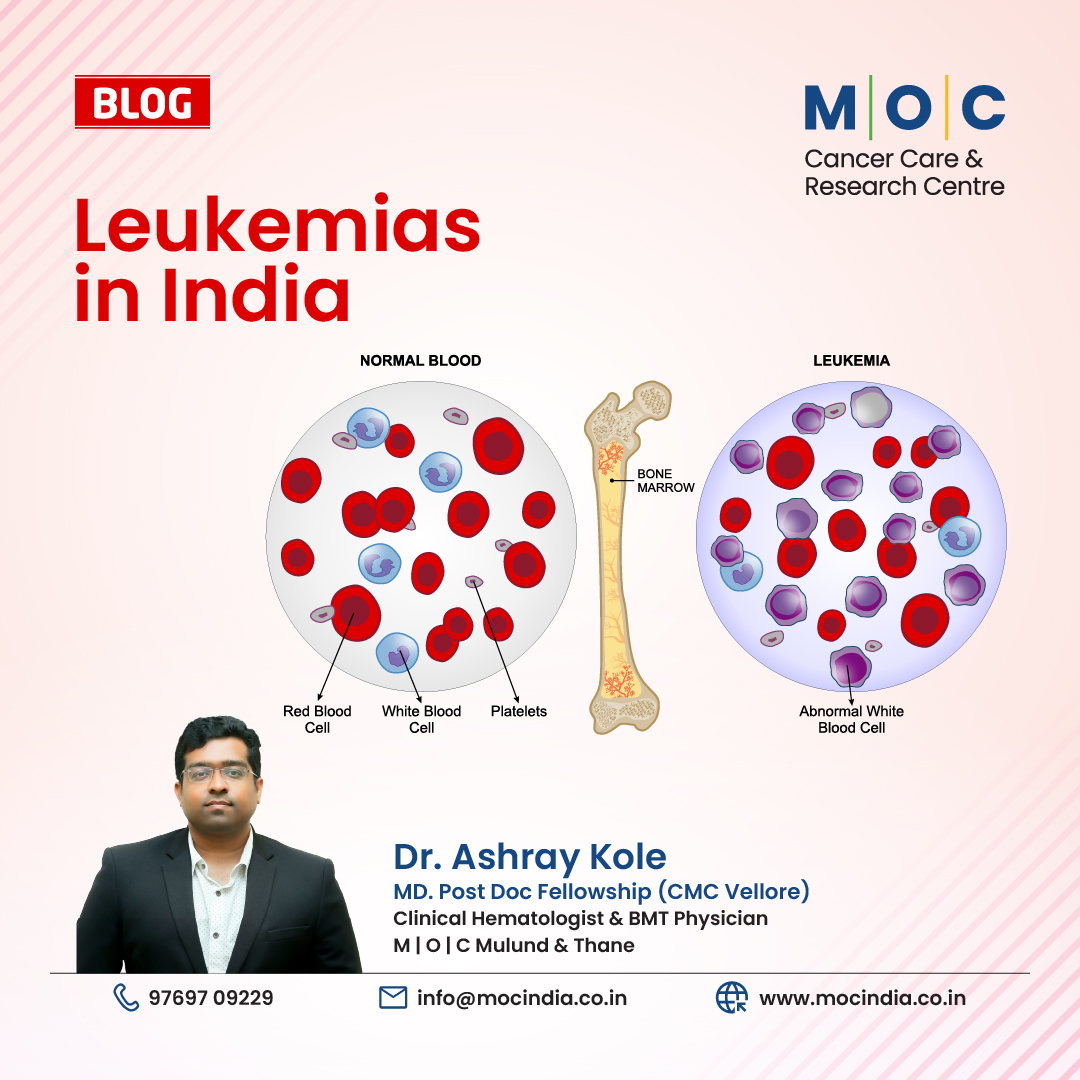
- 23rd Feb, 2026
- Leukemias in India- A Guide by Dr. Ashray Kole, Hemato-Oncologist & BMT Physician
-
![Nidar Naari is a movement initiated by M|O|C Cancer Care & Research Centre]()

- 10th Feb, 2026
- Nidar Naari is a movement initiated by M|O|C Cancer Care & Research Centre
-
![Cervical Cancer Awareness Month- January 2026]()

- 23rd Jan, 2026
- Cervical Cancer Awareness Month- January 2026
-
![Why Vaccinating Boys Against HPV is a Win for Everyone ?]()
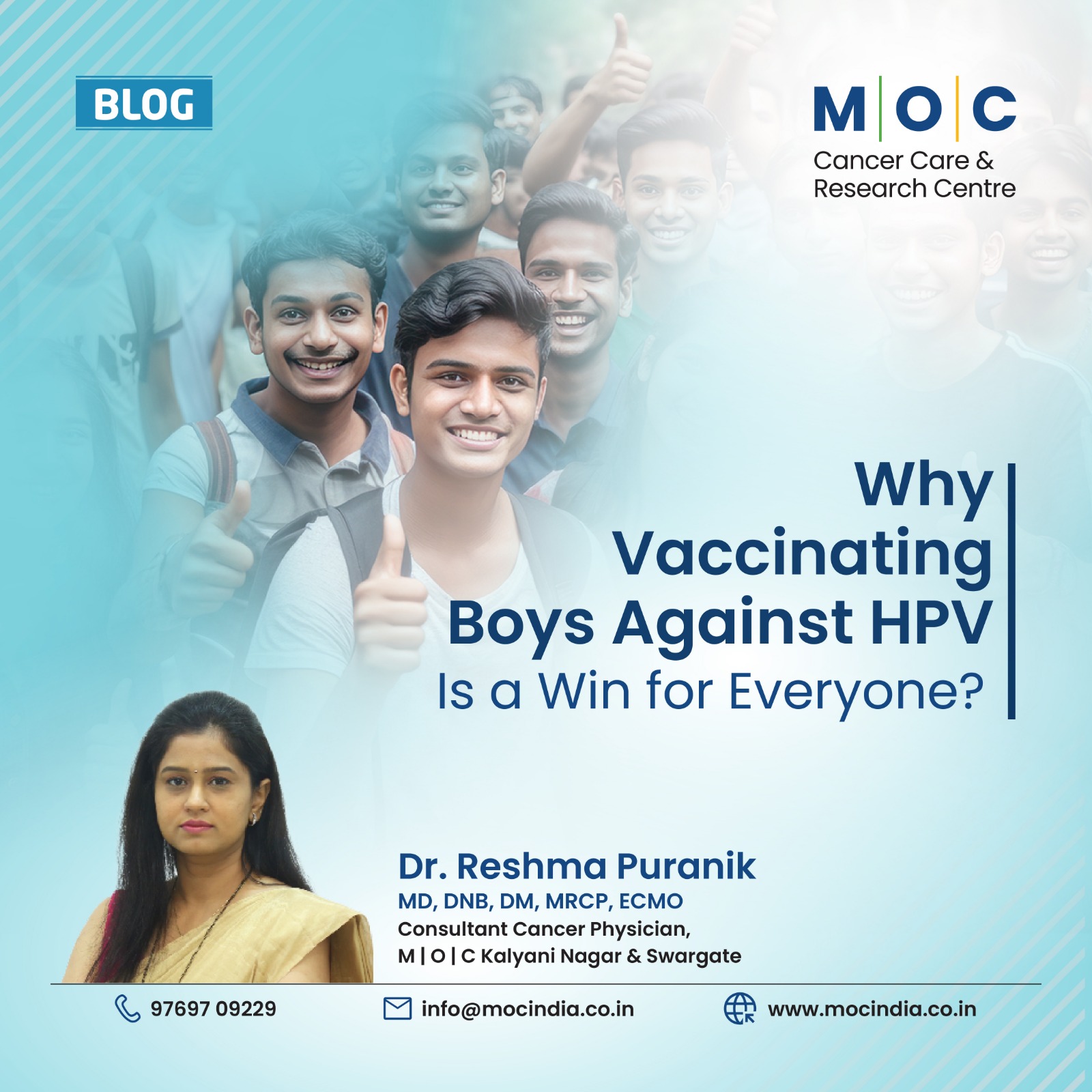
- 20th Jan, 2026
- Why Vaccinating Boys Against HPV is a Win for Everyone ?
-
![Are Pollution and Chemical Exposure Driving the Rise of Blood Cancer Cases in Children?]()
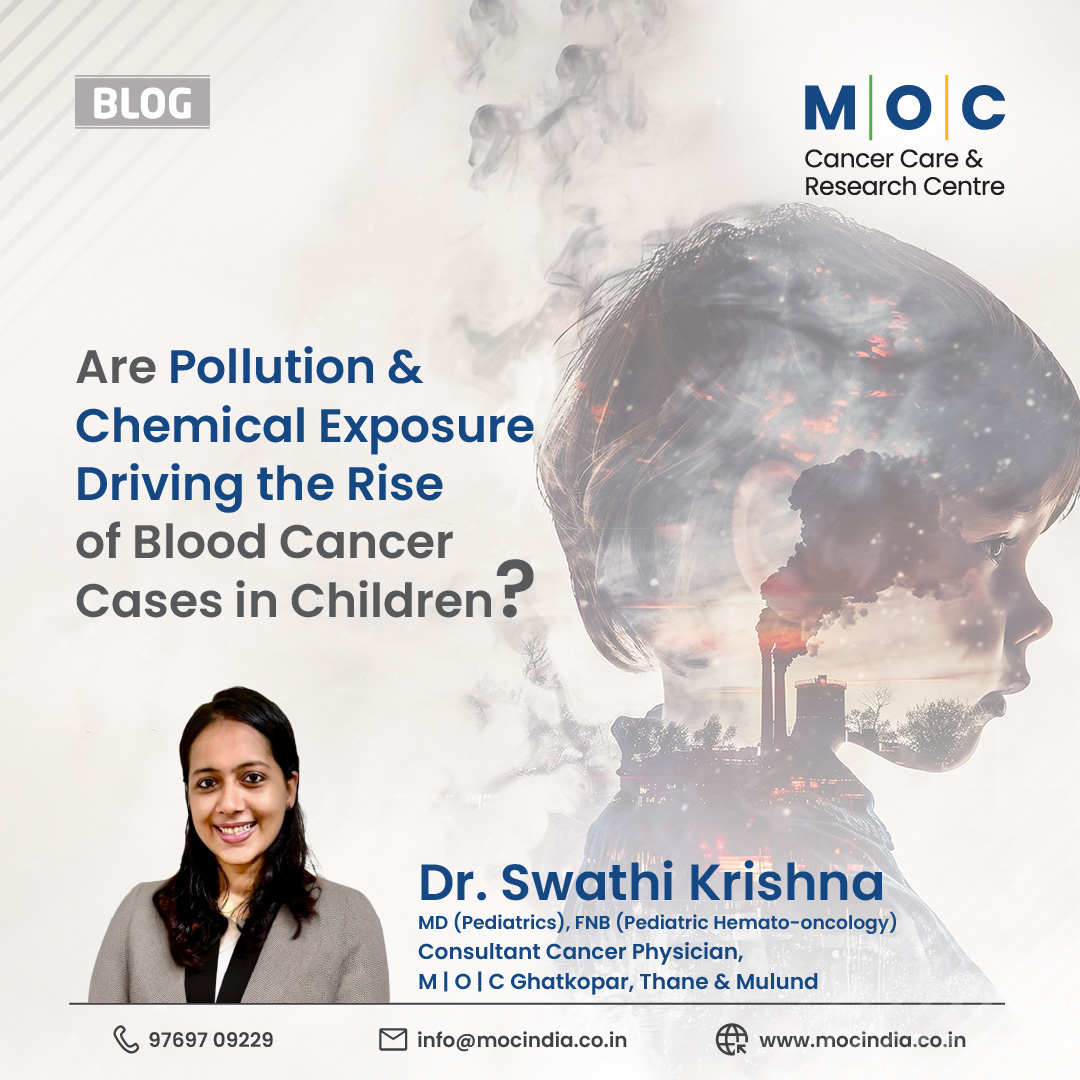
- 17th Jan, 2026
- Are Pollution and Chemical Exposure Driving the Rise of Blood Cancer Cases in Children?
-
![Significant Advancements in Cancer Treatment in 2025- Dr Kunal Jobanputra- M|O|C Kemps Corner and Mahim]()
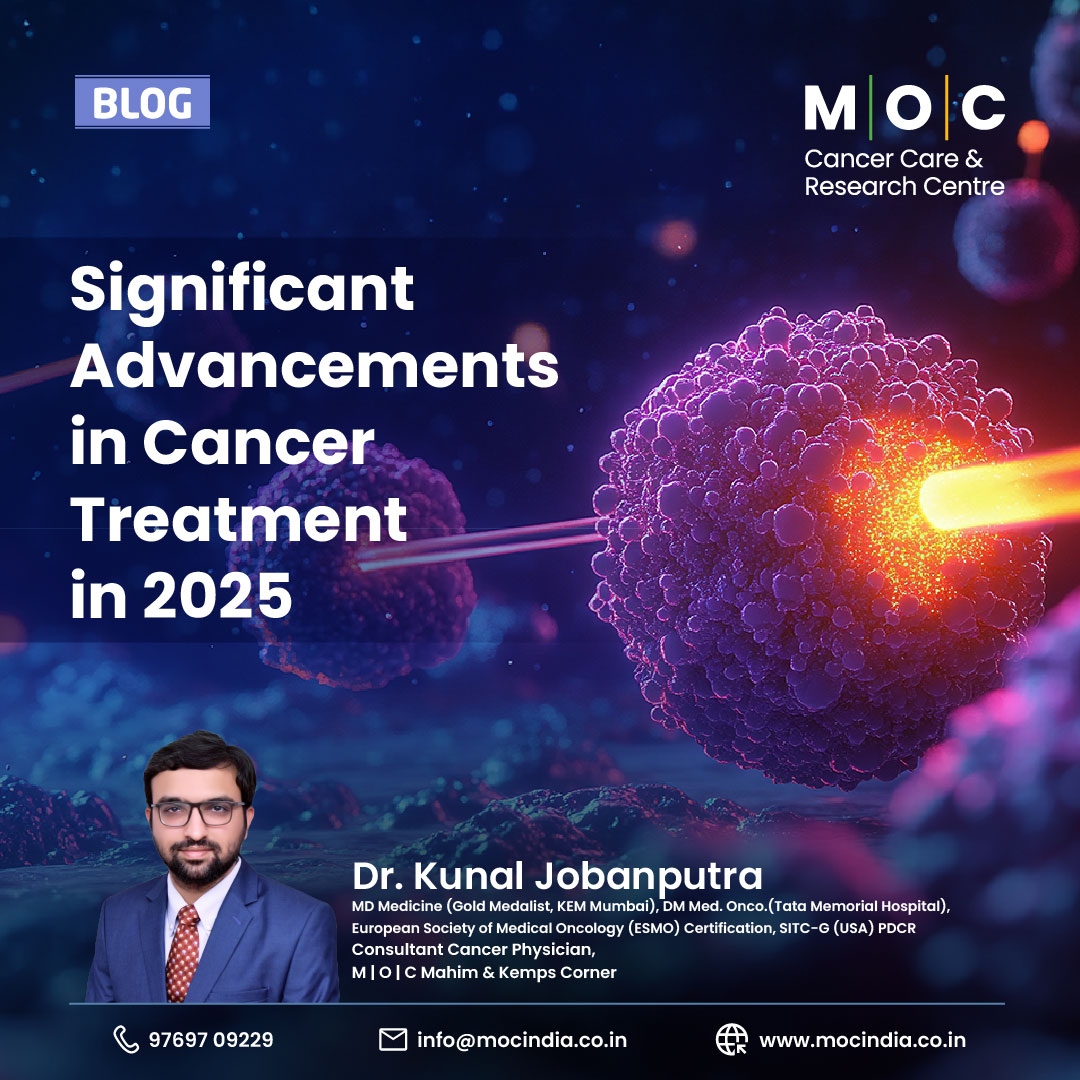
- 12th Jan, 2026
- Significant Advancements in Cancer Treatment in 2025- Dr Kunal Jobanputra- M|O|C Kemps Corner and Mahim
Book Your Appointment








